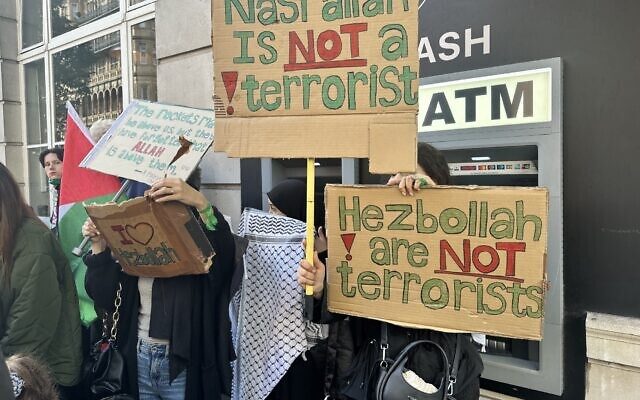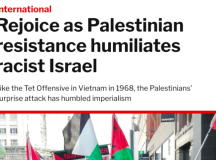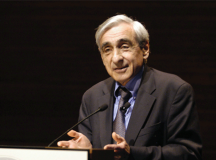Andrés Spokoiny is the President and CEO of the Jewish Funders Network.
There was a time, not long ago, when societies built their stories around heroes. Now, the victim has dislodged the hero as the center of society’s focus of admiration and desire. We dreamed of being heroes, now we yearn to be considered victims.
Heroes and victims are very different. The hero sacrifices herself for the common good. She goes ‘out of herself’ and towards the other. The victim, however, withdraws into herself. The hero was rewarded by society for her merits, the victim for her suffering, real or imaginary. The culture that values heroes places demands of greatness on the hero, but the victim culture frees the victim from any demands. It gives the victims promissory notes that never expire and that can never be paid in full.
In the victim culture, once you achieve a place in the pantheon of victims, you become unassailable. You enjoy a presumption of moral superiority and a de facto moral impunity. Your feelings become the absolute arbiters of truth. Like Christ, by your suffering you become a figure of sanctity, the locus of truth and virtue. You achieve a sort of divinity, and a self-anointed divinity to boot. The victim suffered, and society owes her an unpayable debt, so, ad eternum, she’ll have rights without duties.
It is then unsurprising that, as Rene Girard said, everybody fights to occupy ‘the most desirable place, that of the victim.’ Because in fact, ‘for better or worse, the grievance of the victim dominates the world’s monoculture in which we live,’ and serves as the only remaining absolute value in a time in which every other absolute notion has collapsed.
The just rehabilitation of the victim has transformed into an ideology of victimhood, a construct in which an ‘enlightened elite’ adjudicates positions in an aristocracy of suffering and decides the degree of moral authority the victim will command. That’s what ‘intersectionality’ is: the replacement of the awards and ribbons on a soldier’s chest or the raising of Nobel Prize winners to the highest echelons of our society for the instances of oppression that one suffers. The more victimhood one suffers, the more one can demand from society. The ideology of victimhood is what anthropologists Didier Fassin and Richar Rechtman called, approvingly, ‘a reconfiguration of the contemporaneous moral economy.’ Now the victim represents ‘the Good’ and no evil can emanate from them. The reconfiguration is also epistemic because the sacralization of the victim changes our relation to the concept of truth. After all, no fact-checking can stand against the word of a divine being.
In this context, the case of Rachel Dolezal, who pretended to be black to speak with the authority of a double victim is not only unsurprising but expected. If there are benefits to gain for climbing up in the hierarchy of victimhood, why miss out on them?
And of course, there’s no victim without victimizer. Nietzsche, in On the Genealogy of Morals, assailed the attitude ‘I am suffering; someone or other must be to blame for that’. For the victim to remain a victim – and continue to profit from the benefits of victimhood – the oppressor must remain an oppressor. That is why the so-called ‘anti-racist’ needs racism. Without it, he loses his raison d’etre. That is how Robin DiAngelo can say so confidently that whites will always be racist. In the victimhood ideology, there’s no redemption possible, no change to look forward to, no improvement to be embarked upon. What’s left is simply an opportunity to capitalize on the victims suffering by, like DiAngelo, charging astronomical fees as anti-racist consultant.
The allure of victimhood is so irresistible that even the world’s most powerful men indulge in it. Donald Trump, despite being a billionaire, a fraudster, liable for rape, and a former president, famously claims to be a victim. And so does Elon Musk, the richest man on the planet. Nobody wants to be left out of the victimhood party.
How did we get here?
Like many bad things, the victimhood ideology started with something good. Michel Foucault rightfully rejoiced that, ‘the suffering of men and women is no longer the mute leftover of politics.’ There were, and are, true instances of discrimination and oppression affecting colonised countries, non-white and indigenous populations, women, and LGBTQ people, among others.
Yet, for all populations still facing oppression, the years since WWII have been a story of emancipation without precedent. Progress has been enormous and, in historical terms, rapid. So how do we explain that it is precisely now, when we see ‘the arc of justice bending towards justice’, the victimhood ideology takes hold so strongly? Why, when we see that progress is possible, do we seek to freeze it by crystallising the roles of oppressed and oppressor forever?
It’s even more puzzling given that the progress of the last century was achieved by the hero mentality, not the victim one; by the likes of Rosa Parks and the Mississippi Three, and not by whiny, rich college students and word-salad spewing academics. So why is this shift happening now?
There’s a confluence of many factors.
The West as a post-heroic society
For starters, after the two world wars, the hero-culture suffered a terrible blow. The lack of a decisive victory in the Korean War and the increasingly unpopular Vietnam War tarnished the image of the soldier willing to go ‘above and beyond’ and stoically march across the no-man’s land while the enemy machine guns tore him to pieces. ‘Look what worshiping heroes brought us’ people said, ‘an unthinkable carnage.’ The frequency with which American men were called to war, after two of the supposed ‘War(s) to end all Wars’ left the public with a weariness strong enough to create a new figure of admiration: the victim. And as the world learned the depths of depravity that occurred during the Holocaust, the Holocaust victim joined the list.
The Holocaust became, rightfully, the ultimate parameter of evil, and its casualties, the archetypical definition of the victim. Not all Jews were comfortable with that dubious honor; and while there’s a streak of victimhood in our national character, our sources eschew that notion. The stories of our oppression, like bondage in Egypt or Purim, highlight the heroic triumph. In those stories, victimhood bestows moral duties rather than rights (having been slaves is the underpinning of many ethical rules). In fact, there’s no word for ‘victim’ in the Hebrew Bible, and modern Hebrew uses for it the word ‘korban’ (the same word used for the objects of ancient sacrifices). Regardless, after WW2, an idealised construct of evil and its victims emerged. The Nazis on one side and the Jews wearing yellow stars on the other are now shorthand for absolute evil and absolute victims. And with the advent of the ideology of victimhood, the place occupied by the Shoah and its victims became the most coveted real estate in the world.
Critical Race Theory replaces Marxism
Another major contributor to the development of the victimhood ideology is the demise of Marxism. Or rather, the realisation that class warfare wasn’t on the cards following the unprecedented material progress the working classes enjoyed in the West. Unrepentant yet perplexed Marxists wondered how, ‘if Capitalism is working better than communism for the proletariat, and if people are risking their lives to leave so-called “communist paradises”, they could keep Marxist philosophy alive and in control?’ The answer: move from class to race and gender. Blame racism and sexism on White, Patriarchal Capitalism (ignoring, of course, the fact that non-capitalist societies tend to be even more patriarchal and racist than capitalist ones).
The most salient advantage to Neo-Marxists of race and gender over class is that those categories are (for the most part) permanent. Capitalists can erode our arguments by achieving class mobility and material progress, but they can never change people’s race. A construct based on racial oppression instead of class all but guarantees an eternal state of grievance.
Post-Colonial Philosophy and Critical Race Theory then joined the party. To be sure, the process that led to the independence of former colonies was one of the most inspiring movements in history. But what we understand as today’s ‘decolonisation’ has little or nothing to do with that epic movement. If one is to believe the ‘decolonisers’ of today (who live mainly in ivory towers in the West), the decolonisation never ends. There’s always something more to decolonise. All the problems of the ‘Global South’ are the fault of ‘The West’. Because if decolonisation ended, then the former colonies would need to take responsibility for themselves, which is a much more onerous proposition than blaming the old metropolis for all their woes.
Embracing Islamic Fundamentalism
The far left’s fascination with (and exculpation of) Islamic fundamentalist violence is part of this phenomenon. The same was true of the 1970s idealisation by ‘progressive’ academics of the genocidal violence of Pol Pot. Because Muslims now have attained a high place in the Olympus of victims, one can’t blame them for the violence they commit. Because everything is allowed to the victim, and because they have the same enemies, Judith Butler can, with a straight face, call Hamas ‘a part of the Global Left,’ as though a theocratic, misogynistic, homophobic, and deeply conservative movement can be called ‘left’ of any sort. After the Charlie Hebdo massacre, and more than two hundred years after their abolition, French left-wing intellectuals demanded the return of blasphemy laws, to protect the sensitivities of Muslims. Victimhood was the alchemy that allowed that reversal. In the past, they implied, blasphemy laws protected the powerful (the Catholic Church and the king), but now their absence damage the vulnerable (the Muslims). In the victimhood ideology mentality, all the ills of the Muslim World are the West’s fault, even and especially the violence Muslims perpetrate. In fact, the greater their barbarism, the bigger our blame.
Needless to say, believing in the perennial victimhood of former colonies is nothing but western imperialism in a new robe. ‘The more the Western world declines,’ says Pascal Bruckner, ‘the more it puffs its chest and calls itself responsible for all the horrors of the world … The post-colonial guilt … is the last attempt of the former dominators to feel important. For every upheaval in history, we say “it’s our fault!” as though we can’t overcome the loss of our empires.’
But while everybody talks about the French colonisation of Algeria, nobody mentions the Ottoman, which lasted three times longer. Needless to say, the Arab, Persian, Russian, or Chinese empires are never discussed as malevolent spirits still haunting decolonised nations.
After decolonisation, feminism also made its contribution to the creation of the victimhood ideology. In a world of ‘sacralised victims,’ it was only expected that the feminist struggle would adopt the language of victimhood too. For the eternal victimhood of neo-feminism, it’s no longer about achieving identifiable goals, like pay equity or reproductive freedom, but about a utopic and ill-defined objective of dismantling the White, Patriarchal Capitalism. The ‘War of the Sexes’ is presented in the same eternal and apocalyptic terms as the race wars. The male will always be violent and oppressive, and the female will be always oppressed, until we achieve a complete deconstruction of society (whatever that means). In the works of Katherine A. McKinnon, Judith Butler, or Andrea Dworkin, we can see a Marxism without revolution and a Christianity without redemption. Of course, victimhood-fueled neo-feminism has achieved nothing to date. While traditional feminism obtained enormous achievements toward equity, the dominant school of neo-feminism squanders the successes of its predecessors. One achieved Roe v. Wade, the other lost it.
The #metoo movement again transformed a legitimate grievance into a festival of victimhood. After courageous women uncovered the pervasiveness of harassment, every woman was presented as deprived of agency, and every man as a potential rapist. The very hashtag, designed to make the survivors of abuse feel less lonely, eventually mutated, courtesy of the victimhood ideology, into a desire to belong to the exclusive club of victims. While brave feminists still fight for empowerment rather than victimisation, their battle is an uphill one.
The ‘grievances studies’ (gender, post-colonial, Black, fat, trans, queer, etc.), or what Jean-Francois Bayart called ‘our academic carnival,’ serve as providers of an endless stream of pseudo-academic concepts that sustain the ideology of victimhood.
The relativisation of the Holocaust
But to take hold, the ideology of victimhood had one major condition to fulfill. One without which the whole edifice would collapse. For a new aristocracy of sacralised victims to emerge, somebody had to cede their place, cease being the model of the victim, and become the archetype of the oppressor. You guessed it: the Jew.
The imposed label of ‘idealised victim’ was one that now needed to be wrested away from Jews. One couldn’t let them comfortably sit at the coveted apex of the victimhood pyramid. And so, the Jew became the rival to eliminate and replace.
In the 1960s and ‘70s, post-colonial and critical race theory advocates started to claim that ‘the real Holocaust’ was the one perpetrated against [insert aggrieved group here]. In the 1960s for example, the program of the Black Panthers relativized the Holocaust, ‘The Germans killed six million Jews, but the American racist participated in the massacre of more than 50 million blacks.’ In the late ‘60s, many intellectuals likened the Vietnamese people to the Jews. And later, Dworkin and McKinnon, reframed the discrimination of women in Holocaust terms, especially in their battle against pornography. For Dworkin, Playboy magazine was ‘Dachau in the bedroom’, and for McKinnon, pornography is, ‘worse than Hitler,’ because, ‘Hitler didn’t transform sex into a genocidal instrument.’
In later years, everything became the Holocaust, and every oppressed group became worse off than European Jews: animal testing is a Shoah, abortion is the Holocaust, and in the age of COVID, both pro-and-anti-vaccine activists claim the right to wear the Yellow Star. Today, ‘Holocaust appropriation’ may be a bigger problem than Holocaust denial.
There are loud echoes of two millennia of religious antisemitism in this displacement. After all, both Christianity and Islam are supercessionist vis-à-vis Judaism. The Church is ‘the New Israel’, the Christian Scripture is the ‘New Testament’ that supersedes the ‘Old’ (a pejorative, Christian adjective for the Hebrew Bible), and Islam corrects and replaces the ‘mistakes’ of Jews in interpreting God’s word anew. The role of the Jewish prophets was merely to preannounce the arrival of Muhammad, the true and definitive messenger of God.
One may ask, why the need to supersede? Can’t there be many victims? Can Jews share that place with other victims of oppression?
As we saw before, in the victimhood ideology, in which the role of the victim confers impunity and power, there is, by necessity, a hierarchy of victims. The victim has degrees of power, but the ultimate power resides with the academic oracle that attributes places in the pecking order. That attribution of places in the hierarchy is not related to actual victimization, but to how ‘useful’ the victim is in indicting the White, Patriarchal Capitalist. That makes it impossible to regard all victims as equally deserving of compassion. And of course, Jews don’t fit the neo-Marxist agenda of ‘indicting Capitalism’, because, among other things, they are a living example of how Capitalism can lift up a people from poverty and oppression.
Jews as the ‘New Nazis’
It’s not enough to merely replace the Jew in the victimhood food chain. Because the magnitude of the crime against them was so enormous, and the complicity in its perpetration so widespread, one needs not just a replacement but a reversal. Jews cannot be replaced as the ultimate and quintessential victim unless they are transformed into the new Nazis. And to do that, Palestinians fit neatly into the role of the new Jews.
But there must be a soft transition to this replacement. The attacks aren’t directed at ‘Jews’, but rather at Israel and Zionists, both being judged as not just bad, misguided, or in need of improvement, but as the very embodiment of evil. And this is done with clean hands, because the victims of the Holocaust, Jews, are supposedly spared. And if the vast majority of Jews are Zionists, well then that’s a voluntary abdication of victimhood throne.
This reversal works wonders in the Western psyche. As we saw, it leaves a place for ‘more deserving’ victims, and it frees the West from its guilt. The Holocaust is an enduring indictment of the West. But if we show that, after all, Jews are ‘worse than the Nazis’, then the West wasn’t wrong in persecuting them. Everything done to the Jews was and is justified. As philosopher Vladimir Yankelevich noted ironically (way back in 1964), anti-Zionism is a blessing for Europe, ‘The only thing we, Europeans, did is simply anticipate the metamorphosis of the Jews into Nazis and tried to avoid it.’
To paraphrase the genial phrase of Israeli psychologist Zvi Rex, ‘The world will never forgive the Jews for Auschwitz.’
As Yankelevich’s warning from 1964 shows, the metamorphosis of Jews into Nazis and Palestinians into Jews happened early; and it started to go mainstream after the Six-Day War. In this case, ‘after’ means just two days after. On 12 June 1967, Catholic priest Youakim Moubarac wrote, ‘The Zionist occupation of Jerusalem is as painful as the Nazi occupation of Paris in 1940.’ And to leave no doubt, he added, ‘The biggest victory of the executioner over the victim is not to kill them, but to transform them into executioners.’ Meaning, that Israel was Hitler’s ultimate success.
This happened so quickly that one gets the feeling – per French sociologist Francois Azouvi – that the reversal of Jews from victim to oppressor was pre-packaged and ready to be deployed at the first opportunity.
Deicide. Again
An interesting intersection of classic and new antisemitism takes place. In the Middle Ages, Jews were the ‘deicidal’ people, those who had killed Christ. Nowadays, Jews kill the new divine figure, that of the victim. Deicide all over again. Supercessionism all over again. But with a superlative twist. As Bruckner says, ‘When Israel commits crimes – and it does, like every state in the world – it can’t be anything else but a genocide. Judaizing the Palestinians implies an automatic ‘nazification’ of the Israelis and of every Jew that doesn’t publicly disavow Israel.’
The victimist antisemitism nominally denounces antisemitism and then, in a feat of admirable plasticity, deploys it again under the name of anti-Zionism. The Palestinians, in this bargain, are deprived of agency. Peter Beinart, although condemning the Hamas massacres, said on a podcast, ‘October 7th is just what happens when people are oppressed.’ As though the Palestinians are beings without the capacity to choose their actions. They are the last ‘noble savages’, innocent always, even when they rape and murder.
Thus, the Holocaust became, for the Jews, the ‘Shirt of Nessus’, the mythological garment that should have protected Heracles but ended up burning him. In this construct, the Jew is exposed as the same usurper he always was. That led Palestinian Christian Edward Said, the pope of post-colonial victimhood, to declare, ‘I am the last Jewish intellectual.’ Of course, that was applauded by those who would yell ‘cultural appropriation’ when Jews sing ‘Go Down Moses’ at their Passover Seders.
The antisemitic former mayor of London Ken Livingstone, another victimist ‘progressive’, even declared in 2016, ‘Hitler was a Zionist.’
Once Jews are banished from the realm of victimhood and instead represent the ultimate evil, hating them is not only acceptable, but necessary. Like Yankelevich said, again prophetically, in 1986, ‘Now people have the right and even the obligation to be antisemitic in the name of anti-racism.’ Being antisemitic becomes the preeminent duty of those who fight colonialism, and anti-racism equals anti-Zionism. Historicity doesn’t matter. The fact that Zionism is, in fact, an anti-colonial movement that fought three empires (Ottoman, German and British) on behalf of an indigenous people is of no significance once Jews were bleached and became the archetype of whiteness.
Zionism as anti-victimhood
Zionism is despised for something else: it runs counter to the culture of victimhood. After the Holocaust, the Jews didn’t fall into the abyss of victimisation. They took their destiny into their own hands, becoming a culture of heroes who deployed agency and empowered themselves to recreate their state in their historic homeland. That attitude is what differentiates Israel and other former colonies. The former didn’t succumb to victimist temptation and became a first-world democracy and an economic miracle, while many of the latter continue blaming their former colonial masters, remaining in a state of chronic dysfunction, wracked by corruption, underdevelopment, and poverty.
The victimhood ideology is antisemitic by necessity. Without demonising the Jews, the entire edifice falls apart. It presents Jews with an antisemitism that sees itself as righteous, a hatred disguised as virtue. As we saw, this mutation of the ancient antisemitic virus has been growing for decades, but it is now, on university campuses and Western streets where the full extent of its noxious nature can be seen. What we failed to see is how inevitable it was.
Perhaps one of the most effective forms of fighting antisemitism today is to rebel against the ideology of victimhood; to stop accepting it as a dogma; to challenge the apostles of the new academic religion of the ‘grievances studies’ and show all victims of oppression that the difficulties of agency are more productive than the immobilism of self-pity. Victimhood may be morbidly comforting, but it guarantees the permanence of oppression.
In sum, we need to bring back the courage and the greatness of the hero.




































